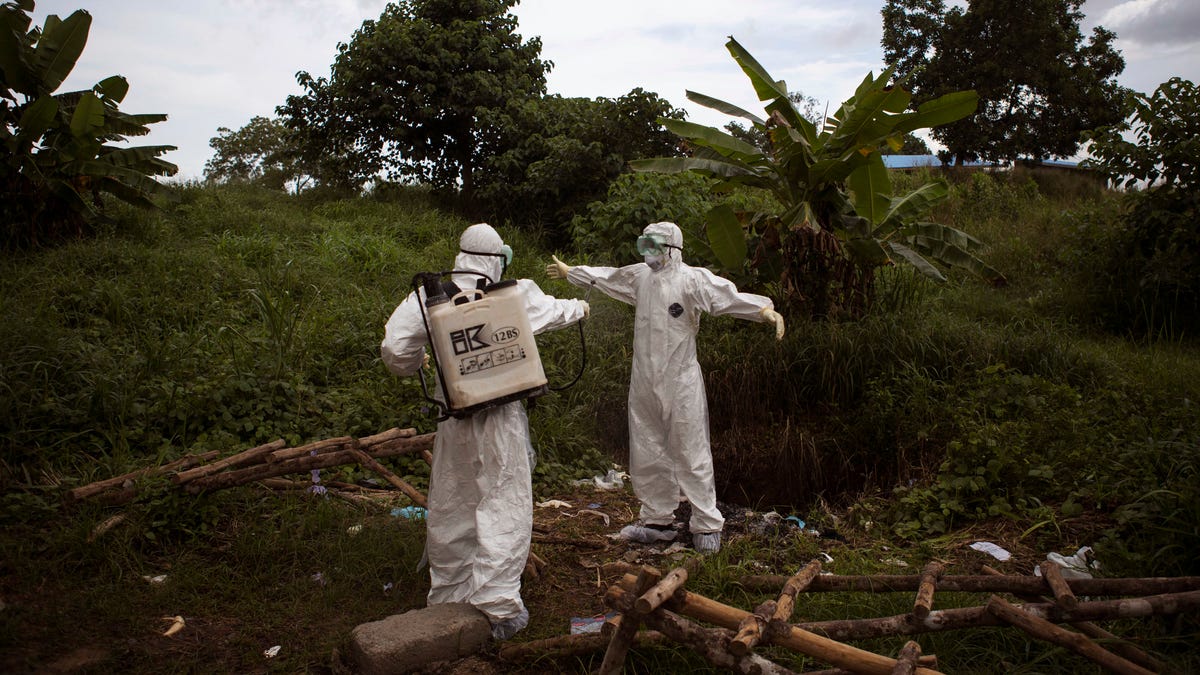
FILE - In this Sept. 24, 2014, file photo, a health worker sprays a colleague with disinfectant after working inside a morgue with people suspected of dying from the Ebola virus, in Kenema, eastern Sierra Leone. An Associated Press investigation found that Metabiota Inc., an American company given crucial disease-fighting responsibilities in the Ebola outbreak, was criticized for committing one blunder after another - misdiagnosing patients with the virus, feuding with other responders and offering rosy predictions about the course of the epidemic that proved wrong. (AP Photo/Tanya Bindra, File)
DAKAR – Thousands of Ebola orphans, teenage mothers and children in charge of households in Sierra Leone are struggling to feed themselves and their families amid widespread food shortages in the West African nation, a British charity said on Monday.
While most families devastated by Ebola have received humanitarian aid, at least 1,400 children orphaned by the epidemic urgently need support, according to Street Child.
The world's worst outbreak of the disease - now officially over - killed more than 11,300 people and infected some 28,600 as it swept through Sierra Leone, Liberia and Guinea from 2013.
"Teenage orphans have taken on the burden of looking after their young siblings and are struggling to cope," Street Child's chief executive officer Tom Dannatt said in a statement.
"Several have dropped out of school, sacrificing their own futures to try and make sure that their brothers and sisters can stay in education," Dannatt added. "Sadly, running a business and a household is proving too tough for many of them."
Some 3.5 million people - more than half of Sierra Leone's population of six million - do not have enough safe and nutritious food to eat, the World Food Programme (WFP) and Food and Agriculture Organization (FAO) said last month.
Food shortages in most of the country are caused by problems that predate the Ebola outbreak, according to the U.N. food agencies, which said the number of people "severely" affected by a lack of food has increased by 60 percent since 2010.
The shortages, which have seen the price of a bag of rice more than double since 2014, have hit orphans, teenage mothers and child-headed households the hardest, Street Child said.
The Ebola epidemic left more than 12,000 children orphaned while at least 18,000 teenage girls became pregnant during the outbreak, according to the U.N. Population Fund (UNFPA).
"A collapsed economy that is no longer propped up by the aid given during and immediately after Ebola means that life is very hard for everyone," Dannatt said, adding that more people may go hungry and more girls may be forced to sell sex to afford food.
